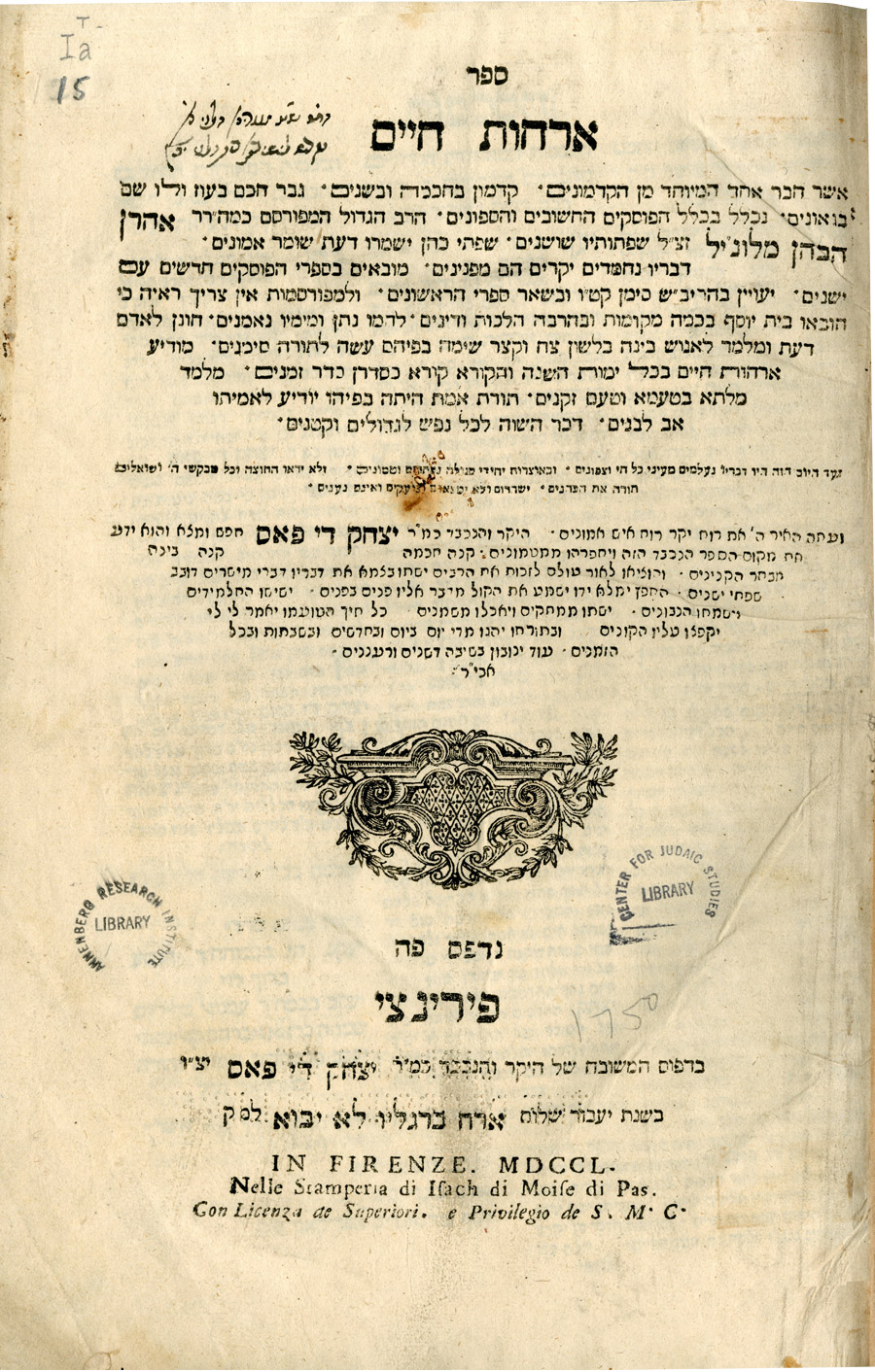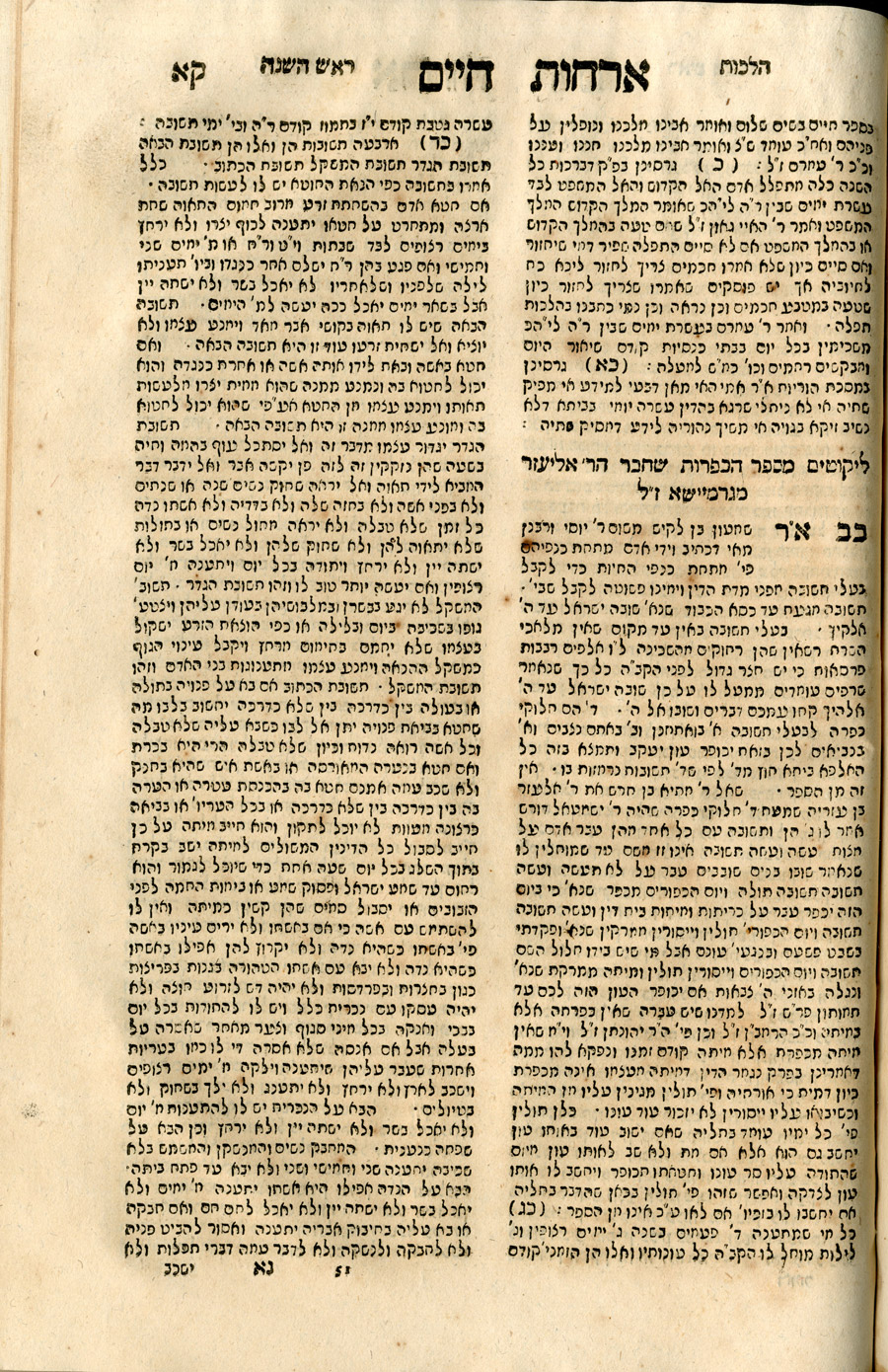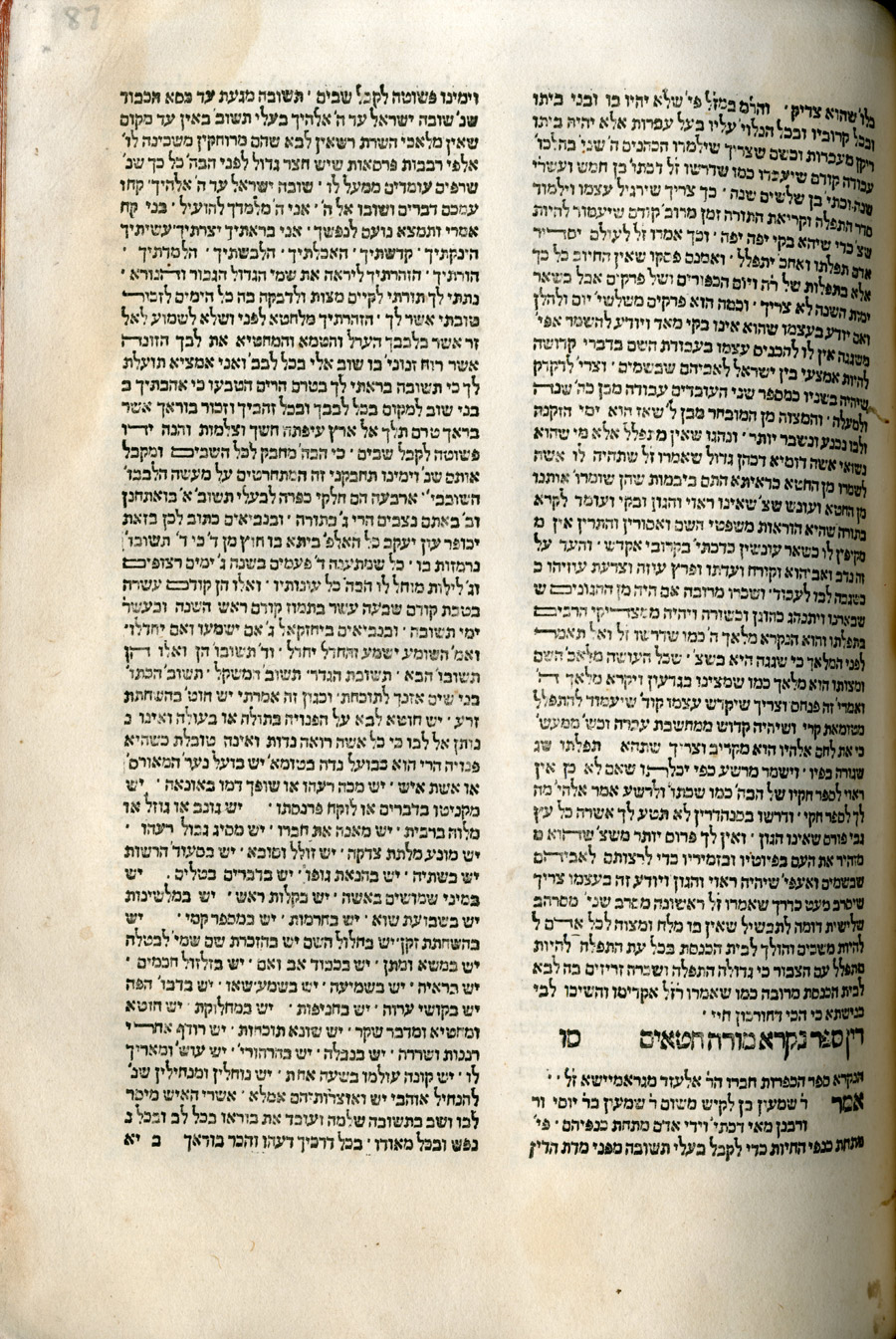Rabbi Eleazar ben Judah of Worms (d. c. 1230), a leading figure among the German Pietists (Haside Ashkenaz), authored a series of treatises that prescribed exceedingly strict physical regimens (tiqqunei teshuvah) in order to atone for various sins. In a treatise entitled Moreh Hattaʾim/Sefer Kapparot, which was reproduced in the parallel early fourteenth-century Provencal compendia, Sefer Orhot Hayyim le-Aharon ha-Kohen mi-Lunel and in the anonymous Sefer Kol Bo (extant in some fifteen manuscripts), Eleazar presented a penitential regimen for a Jew who had converted to Christianity and now wished to return to the Jewish community.
In order not to dissuade this reverting Jew, Eleazar is relatively mild in the physical discomforts and afflictions that he recommends. Crucial to this regimen, however, are two highly symbolic and suggestive acts: the reverting Jew must restrain himself from entering a church and even from talking to priests and clergymen at the entrance way, and he must immerse himself in a ritual bath. These actions were intended by Eleazar to serve as a kind of "unbaptism," and to sever substantive ties with the Christian community, as an essential part of the process of expiation and re-acceptance into the Jewish community.


